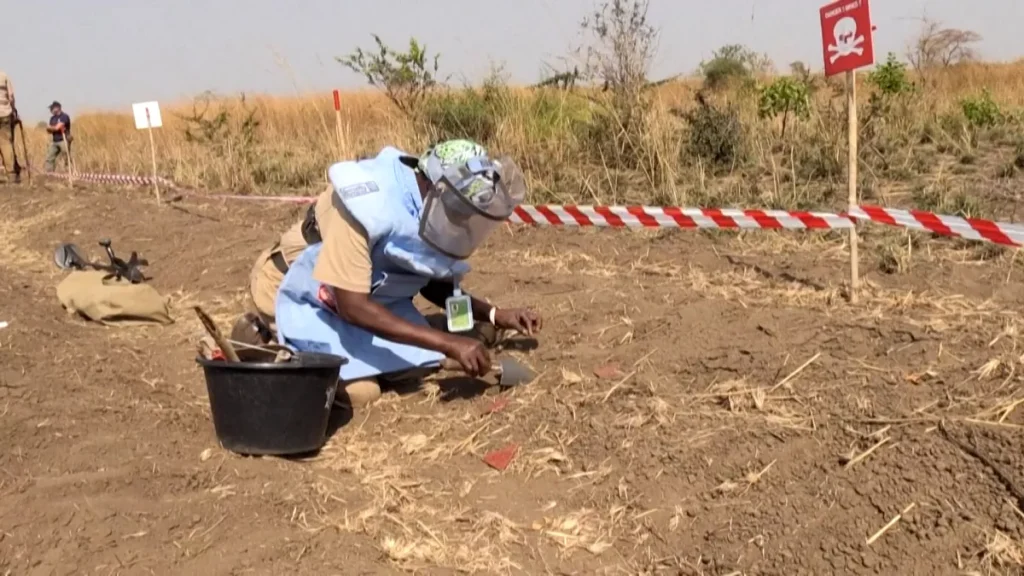South Sudan said Friday it had made significant progress toward demining and the removal of unexploded ordnance since 2004, despite many challenges.
Speaking during the International Day for Mine Awareness and Assistance in Mine Action in Juba, the Chairperson of the South Sudan Mine Action Authority, Jurkuch Barach Jurkuch, stated that since the launch of the first humanitarian demining teams in 2004—and the establishment of the National Mine Action Authority following the Comprehensive Peace Agreement in 2005—South Sudan had made remarkable strides.
Jurkuch noted that the recent accession to the Convention on Cluster Munitions in 2023 and the adoption of the first gender equality and diversity policy earlier this year were additional milestones in building a safer nation.
However, he acknowledged that demining efforts had been hindered by floods, insecurity, and poor infrastructure.
“Flooding, poor infrastructure, ongoing insecurity, and declining donor support threaten our progress. Donor support here is a bigger problem because of what I call ‘donor fatigue,’ so funding is not progressing well,” he said.
Jurkuch emphasized that every day of delayed clearance prolonged fear and suffering, denying families the opportunity to farm, children the safety to walk to school, and communities the chance to thrive.
“Landmines, cluster munitions, and other explosive hazards do not just scar our land—they rob us of lives, livelihoods, and the hope of a safe future,” he said.
“Despite the challenges, South Sudan remains committed to its international obligations under the Anti-Personnel Mine Ban Convention and other treaties, with the goal of declaring our country mine-free by 2030. This goal is within reach,” Jurkuch added.
He said the National Mine Action Authority was working closely with partners to enhance national ownership, promote inclusive mine action, and reduce casualties through awareness and education.
The Deputy Special Representative of the UN Secretary-General and Humanitarian Coordinator for South Sudan, Anita Kiki Gheho, noted that the number of landmine casualties had gradually decreased compared to 37 years ago.
“In 1988, explosive ordnance tragically claimed 495 lives in a single year. By 2024, that number had fallen to 16 recorded casualties—a testament to the collective efforts of mine action actors. Over the past two decades, more than 1,300 square kilometers of land have been cleared, and today, only 22 square kilometers of known contaminated land remain,” she said.
She added that a South Sudan free from explosive hazards was now within reach, praising the contributions of women in demining services.




